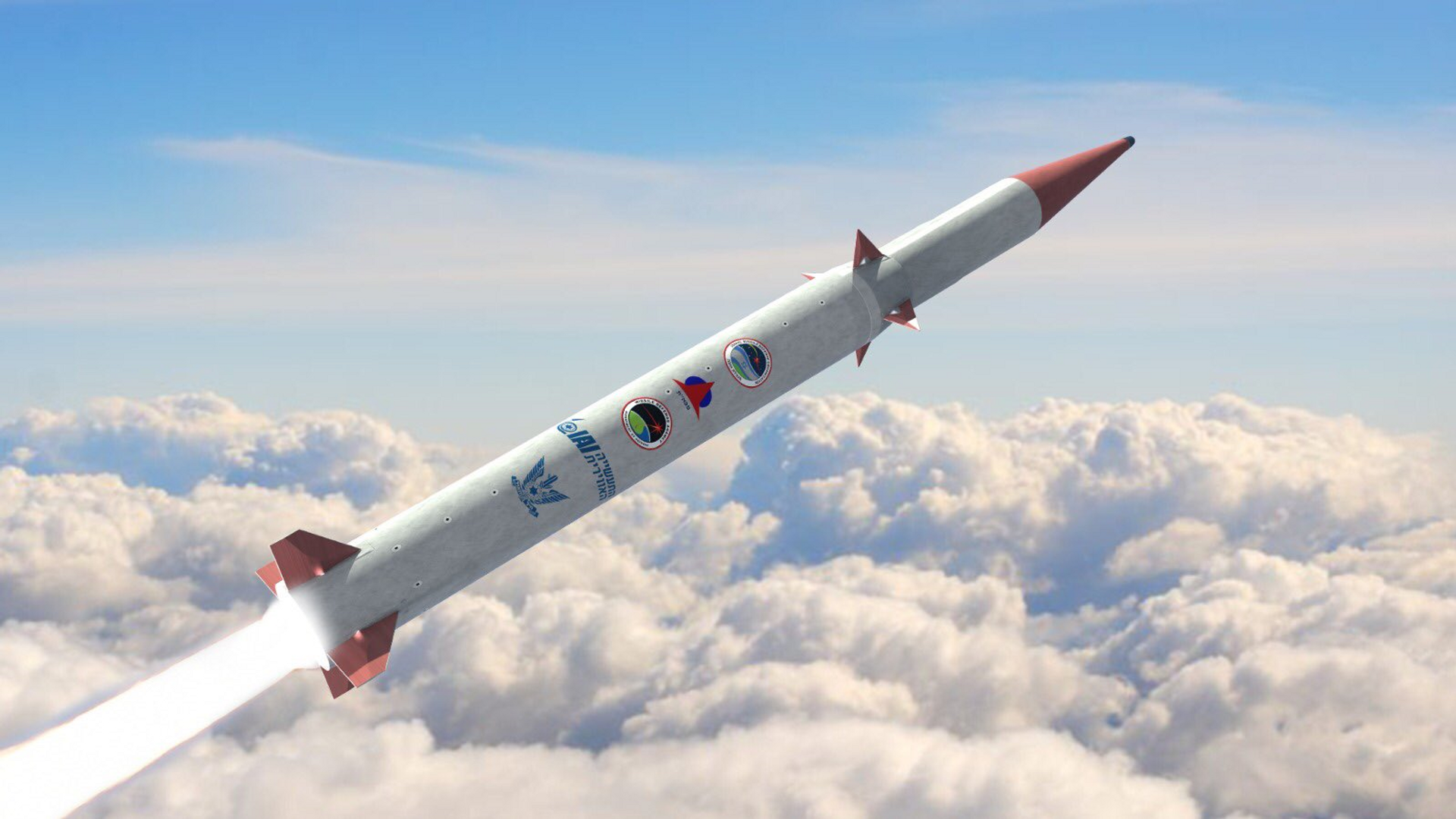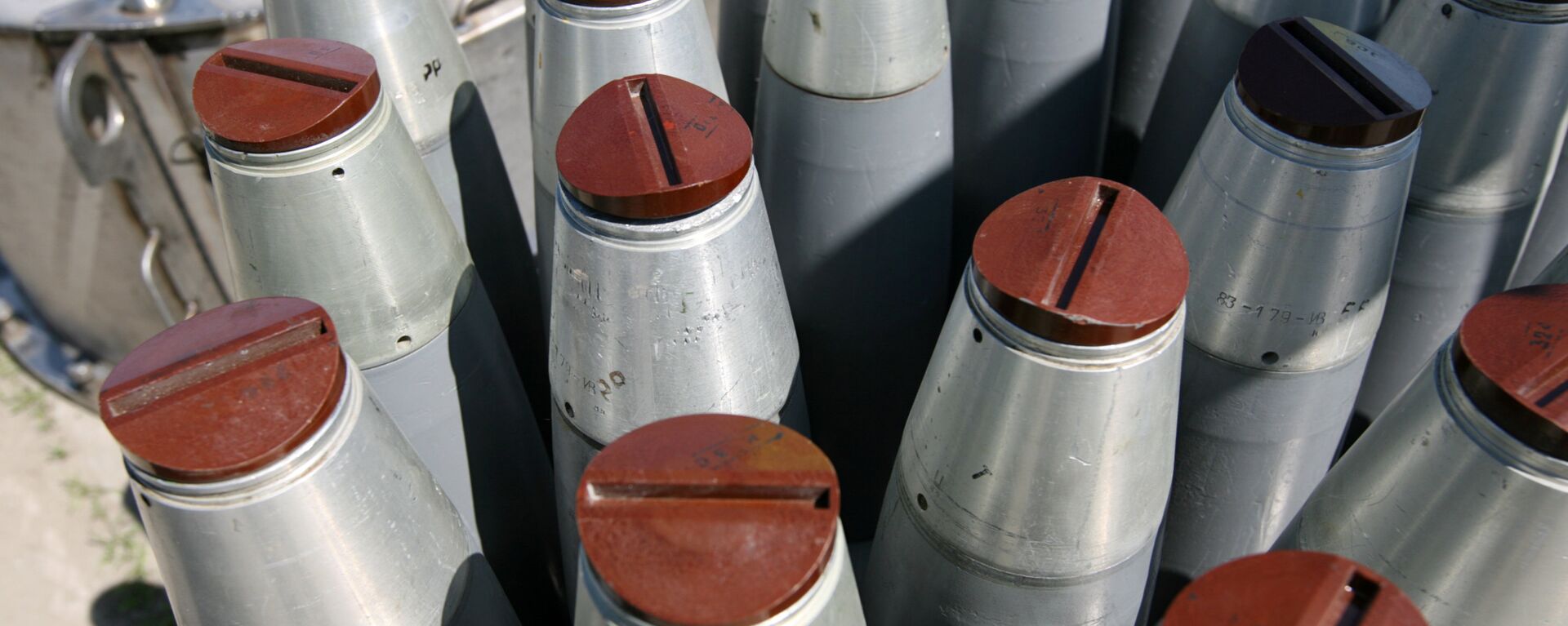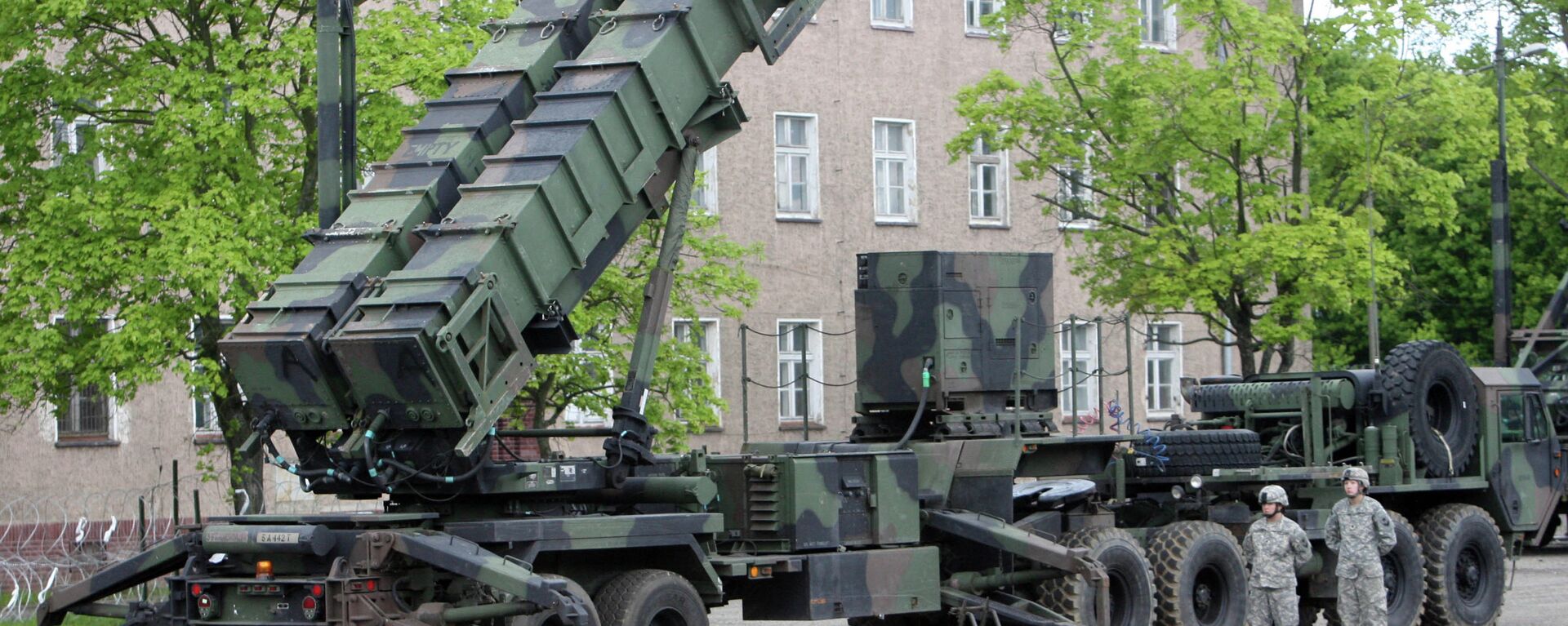https://en.sputniknews.africa/20231119/has-israel-started-first-space-war-in-history-with-arrow-defense-system-1063649552.html
Has Israel Started First Space War in History With Arrow Defense System?
Has Israel Started First Space War in History With Arrow Defense System?
Sputnik Africa
In early November, Israel announced the first successful interception of a missile by its most advanced air defense system, the Arrow. It was hailed by the... 19.11.2023, Sputnik Africa
2023-11-19T17:01+0100
2023-11-19T17:01+0100
2023-11-19T17:01+0100
features
israel
germany
israel defense forces (idf)
european union (eu)
international
west
united states (us)
military
military exercises
https://cdn1.img.sputniknews.africa/img/07e7/0b/13/1063649844_0:0:1600:900_1920x0_80_0_0_dd1819afb22640457547cc128702c627.png
Israel's Arrow 3 (also known as Hetz 3) reportedly downed its first missile on November 9, Israeli media reported. The air defense system apparently intercepted a surface-to-surface missile supposedly launched from Yemen in the Red Sea region. The event came a week after the Arrow 2 system (Hetz 2) intercepted a long-range ballistic missile allegedly launched by the Houthi movement (a political and armed organization based in Yemen) against targets in Israel. According to public information, the Houthi have Toufan missiles, an advanced version of the Iranian Shahab.Israel maintains a multi-layered air defense system, of which Arrow 2 and 3 are the last layers. With a range of between 2,000 and 2,500 kilometers and an altitude of up to 100 kilometers, they exceed the coverage of the famous Iron Dome and David's Honda systems, which have ranges of up to 40 kilometers and 300 kilometers, respectively.Carlos Eduardo Valle Rosa, a doctor of geography and colonel in the Brazilian Air Force (FAB) reserve, told Sputnik that the Israeli multi-layered system can function even if one of the layers fails.He explained that the Arrow systems were designed to counter long-range ballistic missiles in the possession of Israel's regional adversaries, such as Iran. Although the Israel Defense Forces (IDF) has not released details of the intercepts, the incidents have caused a stir in the international media.French newspaper Le Figaro suggested that Arrow 2's interception occurred outside the atmosphere, which would constitute the first space war in world history. However, Valle Rosa disagreed with Le Figaro's statement and pointed out that space warfare is already part of daily military life. In his opinion, the argument that it would have been an act of space war "is fallacious." He added that even if the Karman line were accepted, the interception limit of the Arrow system is 100 kilometers, which means that it is within airspace.What is Space War? Space warfare is not just about intercepting missiles outside the atmosphere. Other measures such as the use of anti-satellite weapons, radio-electronic warfare and direct energy weapons are already classified as such, according to Valle Rosa.He explained that weapons designed to hit or detonate near satellites, as well as attack their ground stations, are already being used in space wars. Among the examples, he highlighted the Russian S-500 surface-to-air missile system, capable of shooting down satellites, and the A-235 PL-19 Nudol under development.Likewise, electromagnetic warfare can also be considered as an instrument of the space battle, since it aims to neutralize satellite communications by interfering with the signals they send to Earth or vice versa.Another example of space warfare is the use of cybernetic instruments to influence data generated by satellites. According to him, Iran has space warfare cyber capabilities designed to interfere with Israeli satellite systems, which are used regularly.The colonel concluded that this event is not the first space war in history, it is part of "military life".Arrow System in GermanyAlthough the Arrow system has yet to reach any historic achievements, it has attracted the interest of other countries, such as Germany. In June 2023, Berlin approved the purchase of three batteries for an impressive $3.5 billion, the largest arms sale in Israel's history, said Demetrius Pereira, professor of international relations at ESPM-SP (Brazilian School of Advertising and Marketing).However, the pacifist policy of Germany has been replaced by a commitment to the modernization of its armed forces, with a significant increase in defense spending. At the same time, taking into account the country's rejection of nuclear weapons with the signing of the Treaty on the Non-Proliferation of Nuclear Weapons, it was considered unlikely to surpass the power of other military powers. However, it is Germany's financial resources that raise questions about its decision to purchase the Arrow system. Media reported that Paris expressed its dissatisfaction with Berlin's decision to spend such a large sum on an Israeli system instead of investing in the development of European capabilities.According to defense media, in addition to Germany, another unnamed country has expressed interest in purchasing an Israeli defense system for $1.2 billion. The information was received by the Israeli Ministry of Defense on November 9, the same day as the first successful Arrow 3 interception.On October 7, Israel was hit by an unprecedented rocket attack from the Gaza Strip, with troops from the Hamas movement infiltrating the border areas. On October 8, the Jewish state announced that it had invoked Article 40 of the Basic Law, which means that the country is officially in a state of war.
https://en.sputniknews.africa/20231015/1062812898.html
https://en.sputniknews.africa/20230824/1061607464.html
israel
germany
west
united states (us)
Sputnik Africa
feedback@sputniknews.com
+74956456601
MIA „Rossiya Segodnya“
2023
Samantha Arias
https://cdn1.img.sputniknews.africa/img/07e7/0a/18/1063050346_115:0:834:719_100x100_80_0_0_1682778780537fd5aa8dd2536a012c1b.jpg
Samantha Arias
https://cdn1.img.sputniknews.africa/img/07e7/0a/18/1063050346_115:0:834:719_100x100_80_0_0_1682778780537fd5aa8dd2536a012c1b.jpg
News
en_EN
Sputnik Africa
feedback@sputniknews.com
+74956456601
MIA „Rossiya Segodnya“
Sputnik Africa
feedback@sputniknews.com
+74956456601
MIA „Rossiya Segodnya“
Samantha Arias
https://cdn1.img.sputniknews.africa/img/07e7/0a/18/1063050346_115:0:834:719_100x100_80_0_0_1682778780537fd5aa8dd2536a012c1b.jpg
israel, germany, israel defense forces (idf), european union (eu), international, west, united states (us), military, military exercises, military drills, military aid, weapon
israel, germany, israel defense forces (idf), european union (eu), international, west, united states (us), military, military exercises, military drills, military aid, weapon
Has Israel Started First Space War in History With Arrow Defense System?
Samantha Arias
Producer / Podcast host
In early November, Israel announced the first successful interception of a missile by its most advanced air defense system, the Arrow. It was hailed by the world's media as the first act of space warfare in history. But can it really be considered as such? Sputnik explains what space warfare is and how it is being fought on Earth and beyond.
Israel's Arrow 3 (also known as Hetz 3) reportedly downed its first missile on November 9, Israeli media reported. The air defense system apparently intercepted a surface-to-surface missile supposedly launched from Yemen in the Red Sea region.
The event came a week after the Arrow 2 system (Hetz 2) intercepted a long-range ballistic missile allegedly launched by the Houthi movement (a political and armed organization based in Yemen) against targets in Israel. According to public information, the Houthi have Toufan missiles, an advanced version of the
Iranian Shahab.
Israel maintains a multi-layered air defense system, of which Arrow 2 and 3 are the last layers. With a range of between 2,000 and 2,500 kilometers and an altitude of up to 100 kilometers, they exceed the coverage of the famous Iron Dome and David's Honda systems, which have ranges of up to 40 kilometers and 300 kilometers, respectively.
Carlos Eduardo Valle Rosa, a doctor of geography and colonel in the Brazilian Air Force (FAB) reserve, told Sputnik that the Israeli multi-layered system can function even if one of the layers fails.
"These layers are complementary, if one system fails, the other can still act and expand the defense capability," Valle Rosa said.
He explained that the Arrow systems were designed to counter long-range ballistic missiles in the possession of Israel's regional adversaries, such as Iran. Although the Israel Defense Forces (IDF) has not released details of the intercepts, the incidents have caused a stir in the international media.
French newspaper Le Figaro suggested that Arrow 2's interception occurred outside the atmosphere, which would constitute the first space war in world history.
"Never before has there been combat outside the limit of 100 kilometers – called the Karman line – that delimits the Earth's atmosphere from space [...] It was the first time in world military history," Western media reported.
However, Valle Rosa disagreed with Le Figaro's statement and pointed out that space warfare is already part of daily military life. In his opinion, the argument that it would have been an act of space war "is fallacious."
"First of all, because there is no consensus on the limit between airspace and outer space: the Karman line [boundary between Earth's atmosphere and outer space] is not a consensus," he commented in this regard.
He added that even if the Karman line were accepted, the interception limit of the Arrow system is 100 kilometers, which means that it is within airspace.
Space warfare is not just about intercepting missiles outside the atmosphere. Other measures such as the use of anti-satellite weapons, radio-electronic warfare and direct energy weapons are already classified as such, according to Valle Rosa.
He explained that weapons designed to hit or detonate near satellites, as well as attack their ground stations, are already being used in space wars. Among the examples, he highlighted the
Russian S-500 surface-to-air missile system, capable of shooting down satellites, and the A-235 PL-19 Nudol under development.
Likewise, electromagnetic warfare can also be considered as an instrument of the space battle, since it aims to neutralize satellite communications by interfering with the signals they send to Earth or vice versa.
"In the Ukrainian conflict, Russia used systems that emit very powerful electromagnetic signals to intercept satellite signals and deprive Kiev of access to GPS, preventing its opponent from being able to use precision weapons or drones," he elaborated.
Another example of space warfare is the use of cybernetic instruments to influence data generated by satellites. According to him, Iran has space warfare cyber capabilities designed to interfere with Israeli satellite systems, which are used regularly.
The colonel concluded that this event is not the first space war in history, it is part of "military life".
"So even if the Arrow had intercepted it, in theory, beyond 100 kilometers, it would not be the first space war event in history. Space war is widespread and has long been part of everyday military life," he added.
Although the Arrow system has yet to reach any historic achievements, it has attracted the interest of other countries, such as Germany. In June 2023, Berlin approved the purchase of three batteries for an impressive $3.5 billion, the largest arms sale in Israel's history, said Demetrius Pereira, professor of international relations at ESPM-SP (Brazilian School of Advertising and Marketing).
"Germany had restrictions on defense spending, linked to the division of its national territory and its capital, Berlin, after World War II," Pereira recalled.
However, the pacifist policy of Germany has been replaced by a commitment to the modernization of its armed forces, with a significant increase in defense spending.
"As the richest country in the European Union, Germany has the potential to make large investments in the military area," Pereira said.
At the same time, taking into account the country's rejection of nuclear weapons with the signing of the Treaty on the Non-Proliferation of Nuclear
Weapons, it was considered unlikely to surpass the power of other military powers. However, it is Germany's financial resources that raise questions about its decision to purchase the Arrow system.
Media reported that Paris expressed its dissatisfaction with Berlin's decision to spend such a large sum on an Israeli system instead of investing in the development of European capabilities.
According to defense media, in addition to Germany, another unnamed country has expressed interest in purchasing an Israeli defense system for $1.2 billion. The information was received by the Israeli Ministry of Defense on November 9, the same day as the first successful Arrow 3 interception.
On October 7, Israel was hit by an unprecedented rocket attack from the Gaza Strip, with troops from the Hamas movement infiltrating the border areas. On October 8, the Jewish state announced that it had invoked Article 40 of the Basic Law, which means that the country is officially in a state of war.




